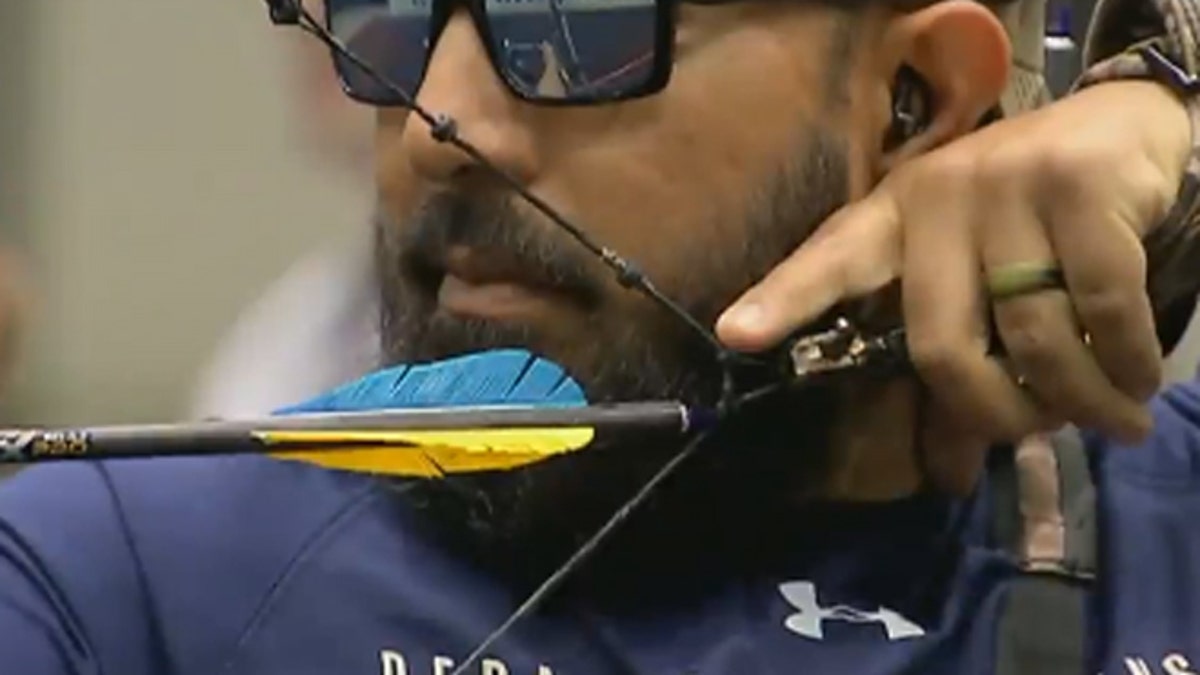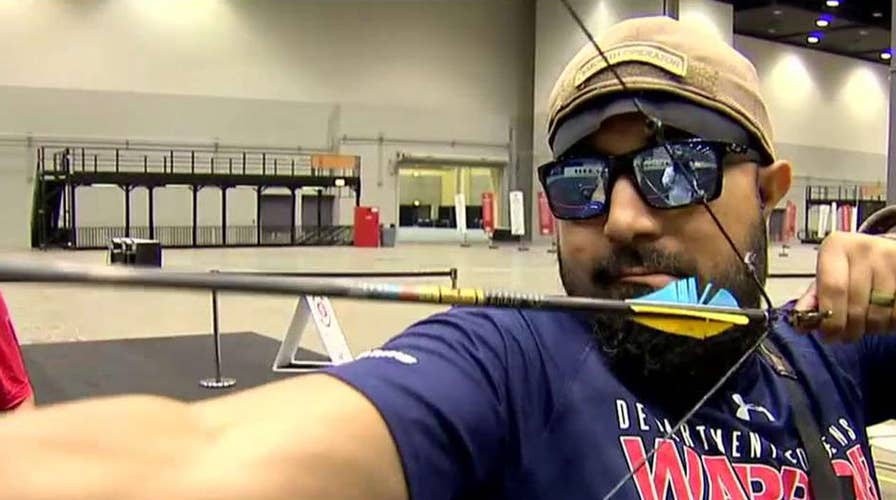Veteran athletes find new challenges at the Warrior Games
Wounded warriors overcome obstacles to compete; senior correspondent Mike Tobin reports from Chicago
While serving in a U.S. Navy security detail in Iraq, A.J. Mohammed’s vehicle was hit by a roadside bomb. A piece of shrapnel tore through his face, his ear drum and eye socket. Nerve damage left him with facial paralysis and legal blindness. That is in addition to traumatic brain and spinal cord injury.
His combat experience also left him with survivor’s guilt, depression and post-traumatic stress.
“That’s been a big problem with my sleep and also with my day-to-day life in large public places, places I don’t know and loud noises, they tend to startle me a lot,” Mohammed said.
WOUNDED VETERANS FIND NEW PURPOSE: SAVING THE PLANET, ONE CORAL AT A TIME
Like many fighting men and women, Mohammed became dependent on a regiment of medication to get to sleep and to get through his day. But they started taking a toll on him. So he decided to take a different path to better health – he became involved in adaptive sports.
“Athletics definitely has been my saving grace,” he said, “by allowing me to stay active, able to get that shock therapy of doing something new.”

A roadside bomb left A.J. Mohammed legally blind. (Fox News)
This week in Chicago, he joins 265 veteran-athletes from Great Britain, Australia, the U.S. Army, Navy, Air Force, Marines and special forces competing in the Warrior Games. Adaptive sports in the games involve archery, marksmanship, sitting volleyball, wheelchair basketball, swimming and track and field competitions.
“The warrior games are important for us,” said U.S. Navy Surgeon General, Vice Adm. Forrest Faison. “Not only does it help us provide a venue for those wounded warriors as a part of their recovery, to have a sense of accomplishment and self-esteem, it’s also a venue to say thank you from a grateful nation. All the folks who turn out to say thank you and cheer them on.”
ARMY VETERAN TO TAKE OVER AT WOUNDED WARRIOR PROJECT AFTER TROUBLES
Of all things for a guy with visual impairment, Mohammed chose to compete in archery.
“A lot of people don’t believe I’m visually impaired because of the way I shoot,” he said.
He is able to shoot with his wife, Grace, spotting the target for him.
“Trusting her as my eyes and as my wife has allowed me to succeed,” Mohammed said.
His wife downplays the role she plays with her husband’s competition.
“I just let him know if he needs to move up or down a little bit or tilt the bow in a certain direction,” she said.
She said she’s just proud of her husband and how far he’s come.
“The fact that he got on the plane and went to the first camp is a huge victory. Just seeing how far he’s come in the first two years that he’s been doing this is huge,” she said.
Unlike veterans who are depressed, anxious and homebound, Mohammed is now out training and competing. He has come away with some medals and has cut the medications he consumes in half.
“These competitions bring back that sense of self-worth, that sense of pride [felt by] every Marine, soldier, airman and sailor when he graduates boot camp,” Mohammed said. “You are now part of a family, part of a team, part of a brotherhood.”


